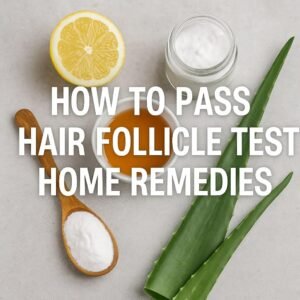Exposed dentin can cause significant discomfort and dental problems if not addressed properly. Learning how to seal exposed dentin at home is essential for managing sensitivity, preventing decay, and improving overall oral health. This comprehensive guide covers everything from understanding dentin exposure, natural home remedies, OTC treatments, to professional care options.
Understanding Exposed Dentin
To effectively treat exposed dentin, it’s important first to understand what dentin is and how it becomes exposed.
What is Dentin?
Dentin is the dense, bony tissue beneath your tooth’s enamel and cementum. It contains microscopic tubules that lead directly to the nerve endings. When enamel wears away or gums recede, dentin becomes exposed, allowing stimuli like hot, cold, or acidic substances to irritate the nerves.
Causes of Exposed Dentin
Exposed dentin can result from multiple factors:
- Gum recession: When gums pull back from the teeth, the dentin near the root is revealed.
- Tooth decay: Cavities can erode enamel, exposing the dentin beneath.
- Abrasion: Aggressive brushing or using a hard-bristled toothbrush.
- Dental trauma: Chipping or fracturing teeth.
- Erosion: Acidic foods and drinks can wear away enamel.
Why You Need to Seal Exposed Dentin
Ignoring exposed dentin can lead to pain and other oral health complications.
Sensitivity and Pain
Exposed dentin tubules allow external stimuli to trigger nerve endings, causing sharp, sudden pain or discomfort during eating or drinking.
Risk of Infection and Further Damage
Without protection, exposed dentin is vulnerable to bacteria, leading to an increased risk of cavities, infections, and further enamel breakdown.
Home Remedies to Seal Exposed Dentin
Many people look for home solutions to manage and seal exposed dentin. Here are proven natural and over-the-counter remedies.
Using Fluoride Treatments at Home
Fluoride helps to remineralise enamel and dentin, reducing sensitivity. You can use fluoride mouth rinses or gels available at pharmacies to strengthen exposed areas.
Applying Desensitising Toothpaste
Toothpaste containing potassium nitrate or stannous fluoride blocks nerve signals in dentin tubules, decreasing sensitivity over time.
Natural Sealants: Oils and Herbal Remedies
- Coconut oil: Known for its antimicrobial properties, oil pulling with coconut oil can help reduce bacterial load.
- Clove oil: Has analgesic and antiseptic properties, ideal for calming tooth pain.
- Aloe vera: Soothing and promotes healing on irritated gums.
- Green tea: Antioxidants in green tea reduce inflammation and support gum health.
DIY Dental Sealant Recipes
Homemade pastes combining baking soda, turmeric, or neem powder can be cautiously used to reduce sensitivity, but care should be taken not to irritate tissues.
Over-the-Counter Sealants and Kits
There are several OTC dentin sealant products designed for easy home application.
How to Use OTC Dentin Sealants
- Clean and dry the affected tooth.
- Apply the sealant according to the product instructions.
- Allow it to set before eating or drinking.
- Repeat applications as necessary.
Common products include resin-based sealants, varnishes, and protective gels.
Preventive Measures to Avoid Further Exposure
Preventing dentin exposure is just as important as sealing it.
Proper Brushing Techniques
Use a soft-bristled toothbrush and gentle circular motions. Avoid aggressive horizontal scrubbing, which causes abrasion.
Diet and Lifestyle Modifications
Limit acidic foods and drinks like citrus, soda, and wine. Drink water after acidic meals to neutralise pH. Avoid grinding teeth by using a night guard if needed.
When to See a Dentist for Exposed Dentin
While home care is helpful, some cases require professional intervention.
Warning Signs for Professional Care
- Persistent or worsening sensitivity and pain
- Visible cavities or enamel loss
- Signs of infection or gum disease
Professional Sealants and Treatments
Dentists can apply stronger fluoride varnishes, dental bonding agents, or restorative materials to seal and protect exposed dentin effectively.
Frequently Asked Questions (FAQs)
Can I permanently seal exposed dentin at home?
Home treatments can reduce sensitivity and provide temporary protection, but permanent sealing usually requires professional dental care.
How long do OTC dentin sealants last?
Most OTC sealants protect for a few days to weeks; regular reapplication is necessary.
Are natural remedies safe for all ages?
Generally, yes, but consult a dentist before using strong essential oils or homemade pastes, especially for children.
Can fluoride toothpaste help with exposed dentin?
Yes, fluoride toothpaste helps remineralise and protect teeth, reducing sensitivity over time.
How can I prevent dentin exposure in the future?
Practice good oral hygiene, use proper brushing technique, avoid acidic foods, and visit your dentist regularly.
When should I see a dentist instead of relying on home treatments?
If pain is severe, persists longer than two weeks, or you notice visible damage, seek dental care promptly.
Conclusion: Taking Control of Your Dental Health
Sealing exposed dentin at home is achievable with the right knowledge and tools. By combining natural remedies, OTC products, and preventive measures, you can manage sensitivity and protect your teeth effectively. However, regular dental visits are crucial for long-term oral health and professional treatment when necessary. Take charge of your smile today!













